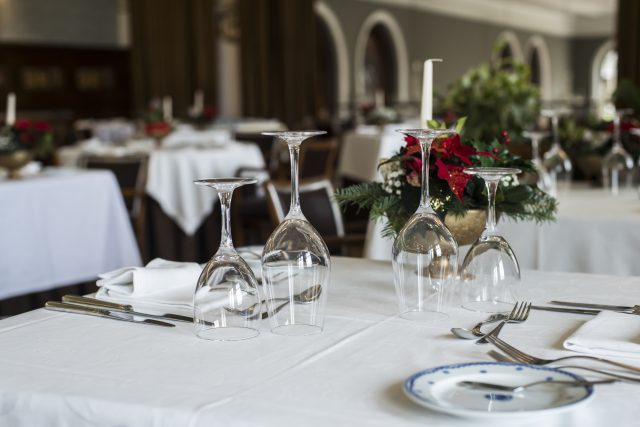This website uses cookies so that we can provide you with the best user experience possible. Cookie information is stored in your browser and performs functions such as recognising you when you return to our website and helping our team to understand which sections of the website you find most interesting and useful.
Could bigger restaurant booking deposits stop no-show customers?
A Twitter thread from Sven-Hanson Brit, the chef and founder of Oxeye in Nine Elms, London, has presented findings to suggest that the threat of bigger fines for missing restaurant reservations reduces the number of no-shows while not deterring customers from booking in the first place.

Brit began the thread by mentioning that Oxeye uses Tock, a hospitality reservation platform.
“After three months of a £50 deposit, I worried that maybe a deposit system was prohibiting some people booking a dinner (not wanting to pay for their friends + not agreeing with deposits are the main pushback we get), so I reduced it from £50, to just £5 per person, with the hope of encouraging more reservations and allowing more people a chance to come using the traditional ‘payment-after-dining’ scenario.”
Instead, Brit found the results to be rather different: “When we charged £50 deposit, we had zero no shows, not a single one, and basically zero late cancellations (except for real emergencies, and then they came another day.) for nearly one full year we had zero no-shows. I cannot emphasise how rare this is. It was solely down to the £50 deposit. As soon as we changed it to £5, the excuses came trickling in. We had our first no-show within a week. We had plenty of cancellations too – both early and late.”
While it is unsurprising that diners who pay bigger deposits are more likely to turn up rather than lose that money by not doing so, what is surprising is that Brit also noted that the booking numbers were the same for both.
While not necessarily a representative sample of how increasing deposits would unfold across the UK, Brit’s thread has received considerable attention, with a video of himself he posted at the beginning of it being viewed more than 600,000 times.
Wine List Confidential author Douglas Blyde shared his views with db: “Like some high-end hotels which have done away with reception counters, I believe top-notch restaurants could offer a bespoke experience when it comes to billing guests. Perhaps diners could agree on a maximum, pre-authorised spend on drinks and dinner? With a standard deduction in the case of late cancellations, which gets higher in the case of no-shows – not unlike the chauffeur service, Wheely.”
“Really rich guests won’t, I suspect flinch at the small change of a £5 deposit,” Blyde continued, “though might even consider themselves more ‘worth it’ if the deposit was £100 or more – such a higher sum must even signifiy to them that the venue is reassuringly expensive, right?”
Tom Fahey, the restaurateur behind The Terrace in the Isle of Wight, offered db his industry perspective on the matter: “My experience is that a percentage of diners attribute responsibility for their dining enjoyment 100% to a restaurant. They don’t see a need to plan, to engage with booking confirmations, read reviews, check menus or prices, or really do anything prior to arrival – they have booked, therefore the restaurant now owns the quality of their experience regardless of its offering. These diners will be put off by deposits because they are put in the position of having to shoulder an aspect of the risk of cancelling and must therefore think ahead – is that date really free for my group, do I actually like this menu, can I afford to enjoy myself, are there wines I will order, will my friends like the place etc. etc.”
“In most cases, they won’t book because they don’t want to plan,” argued Fahey. “Having diners invest time and thought into choosing a restaurant that will make them happy then engaging with booking information to ensure they get the most from their visit is something all restaurants want to achieve. Deposits get us closer to it. At £5, it’s still a no-planning punt. At £50 I think a greater proportion of diners have thought about what they’re signing up to and whether they will enjoy it – we all want those diners.”
Last week, db reported on a court case over a no-show diner being charged €510 by two Michelin Star restaurant Amelia in San Sebastián. Restaurateur Paulo Airaudo won that particularly case, in a legal decision that might well set a precedent for customers disputing these fees.

